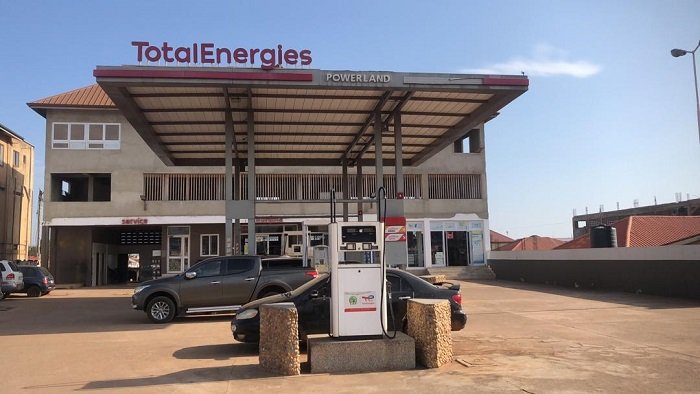Madina TotalEnergies Service Station goes waste over legal Tussle

For more than two years, the Powerland TotalEnergies Service Station at Madina has remained closed following a protracted legal and regulatory dispute between the dealer, Mr Thomas Kofi Classpeter, and TotalEnergies Marketing Ghana.
The closure has left the multimillion-cedi investment idle, with the forecourt now being used as a parking lot by office workers in the area.
Mr Classpeter, who had operated the station for nine years, accused the company of engaging in unfair practices, including unauthorised deductions from commissions and fuel deliveries made without request. On July 7, 2023, he sought to end the relationship.
However, TotalEnergies declined to issue him a release letter, a regulatory requirement of the National Petroleum Authority (NPA) which enables a dealer to switch suppliers.
Without the letter, the station could not procure fuel from any other company.
On August 23, 2023, TotalEnergies filed a suit at the Accra High Court, claiming co-ownership of the station.
The company argued that its provision of pumps, equipment and branding entitled it to part ownership.
Delivering judgment on May 23, 2025, Justice Patrick Baayeh dismissed the claim, ruling that the supply of equipment and branding did not confer ownership rights.
The court also held that the installation of a CalBank Automated Teller Machine (ATM) at the station without Mr Classpeter’s consent was wrongful.
TotalEnergies was ordered to pay him 50 per cent of the rental income from the ATM and GH¢50,000 in costs.
The court further directed the company to issue the release letter within 30 days to enable the dealer to resume operations.
More than 50 days later, TotalEnergies filed an appeal and a stay of execution, effectively suspending enforcement of the judgment.
The station has since remained closed.
At the heart of the dispute is a six-month Memorandum of Understanding (MoU) signed in January 2014, under which the parties were to enter into a 15- year contract after its expiration.
The contract was never executed. The court ruled that the MoU did not extend beyond its six-month duration despite nine years of continuous business dealings.
Meanwhile, the closure according to Mr Classpeter had burdened him with debts, unpaid staff salaries and rusting equipment.
Industry observers say the case underscores the need for stricter enforcement of release letter requirements to protect local dealers from prolonged standoffs with multinational oil firms.
BY CLIFF EKUFUL
🌍 Trusted News. Real Stories. Anytime, Anywhere.
✅ Join our WhatsApp Channel now! https://whatsapp.com/channel/0029VbAjG7g3gvWajUAEX12Q






